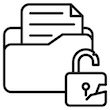
Sacert
Breach Details
Description
We've been tracking a noticeable uptick in older, lower-profile breaches resurfacing on underground forums, often bundled into larger "combolists" targeting specific demographics or interests. This particular dataset, impacting users of the French home renovation blog **Sacert**, caught our attention not because of its size, but because of its age and the simplicity of the exposed data: email addresses and unsalted MD5 password hashes. The data had been circulating quietly for years, but we noticed a recent spike in mentions across several hacking forums, suggesting renewed interest in cracking the hashes and potentially using the email addresses for phishing campaigns.
Sacert: The Home Reno Blog Breach Resurfaces With 20k+ User Records
A data breach impacting **20,218** users of **Sacert**, a French-language home renovation and decor blog, has resurfaced on underground forums after initially occurring in **August 2018**. The breach, which exposed email addresses and MD5-hashed passwords, is now being actively discussed and traded within the cybercriminal community, raising concerns about potential credential stuffing and phishing attacks targeting affected users.
The breach was initially discovered shortly after it occurred in 2018, but its relatively small scale meant it didn't receive widespread attention. The data was found on several underground forums known for trading and selling compromised data. What caught our attention was the recent increase in chatter surrounding the dataset. Discussions suggested that threat actors were actively attempting to crack the MD5 hashes, despite their age and relative weakness. This renewed interest could be attributed to the dataset being incorporated into larger combolists targeting French-speaking individuals or those interested in home improvement and design.
This breach matters to enterprises because it highlights the long tail of data breaches. Even seemingly minor breaches involving older data can pose a significant risk if the exposed credentials are still valid or if the email addresses are used for targeted phishing campaigns. Many users may have reused their Sacert passwords on other, more critical accounts, making them vulnerable to credential stuffing attacks. The incident underscores the importance of regularly monitoring for leaked credentials and implementing robust password management policies.
Key point: Total records exposed: 20,218
Key point: Types of data included: Email addresses, MD5 password hashes
Key point: Sensitive content types: None (beyond PII in email addresses)
Key point: Source structure: Likely a database export (details unavailable)
Key point: Leak location(s): Underground hacking forums (specific URLs unavailable)
Key point: Date of first appearance: August 26, 2018
External Context & Supporting Evidence
While the Sacert breach itself didn't garner major news coverage, the broader trend of older breaches resurfacing is a recurring theme in the cybersecurity landscape. Security researcher Troy Hunt's website, Have I Been Pwned (HIBP), includes the Sacert breach in its database, confirming the compromise and allowing users to check if their email address was affected.
The use of MD5 for password hashing, even in 2018, is indicative of poor security practices. MD5 is a cryptographically broken algorithm and can be cracked relatively easily using readily available tools and rainbow tables. This makes the exposed passwords particularly vulnerable, even after several years. The resurgence of this data in combolists highlights the ongoing risk posed by weak or outdated security measures.
Leaked Data Types
Email · Address · Password · Hash

Sacert
Breach Details
Description
We've been tracking an uptick in smaller, regional breaches hitting classified ad platforms, often overlooked in favor of larger, more publicized incidents. What really struck us about the **Sacert** breach wasn't the relatively low volume of records — **50,863** in total — but the age of the incident and its continued relevance in combolists circulating today. This suggests that even older breaches, if not properly addressed, can continue to pose a risk to users and organizations.
Sacert's 2018 Breach Fuels Ongoing Password Reuse Risks
In August 2018, the Indian classified ads platform Sacert suffered a data breach that exposed approximately 50,863 user records. The breach, which was added to the Have I Been Pwned database on August 26, 2018, contained nearly 51,000 unique email addresses and MD5 hashed passwords. While the breach itself occurred several years ago, its continued presence in combolists raises concerns about credential stuffing attacks and password reuse.
The breach was discovered after the data was added to the Have I Been Pwned database, a popular resource for tracking data breaches and compromised accounts. What caught our attention was the age of the breach and its continued availability on various online platforms. The use of MD5 hashing, an outdated and easily crackable algorithm, further exacerbates the risk to affected users. This incident highlights the importance of using strong, unique passwords and implementing robust password security measures.
This breach matters to enterprises now because the exposed credentials may be used in credential stuffing attacks against other online services. If users have reused their Sacert passwords on other platforms, their accounts are at risk of being compromised. This incident underscores the broader threat theme of password reuse and the need for organizations to educate their employees about the importance of password security.
Key point: Total records exposed: 50,863
Key point: Types of data included: Email Address, Password Hash
Key point: Sensitive content types: None specified
Key point: Source structure: Unknown, likely a database export
Key point: Leak location(s): Combolists, Have I Been Pwned
Key point: Date of first appearance: 26-Aug-2018 on Have I Been Pwned
While there doesn't appear to be widespread news coverage of the Sacert breach specifically, similar breaches of smaller platforms are regularly reported. For example, BleepingComputer frequently covers data breaches affecting various online services. The persistence of this data in combolists is also a recurring theme discussed on security forums and Reddit communities dedicated to data breaches and password security.
Leaked Data Types
Email · Address · Password · Hash


/includes/qr-code.png)